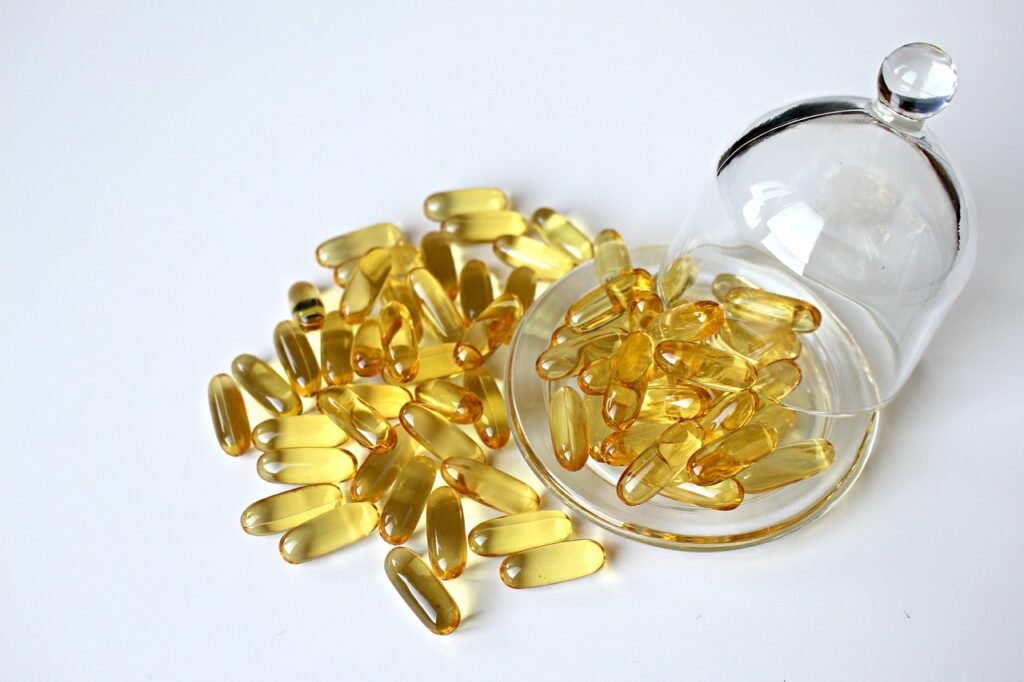
- Intro
- Understanding the Basics of a Supplement Routine
- Essential Vitamins for Everyday Health
- The Role of Minerals in Your Supplement Routine
- Incorporating Antioxidants for Cellular Health
- Probiotics for Gut Health in Your Supplement Routine
- Omega-3 Fatty Acids for Brain and Heart Health
- Adaptogens for Stress Management and Energy
Intro
When it comes to maintaining optimal health and wellness, a well-rounded supplement routine can play a crucial role. By incorporating the right vitamins, minerals, antioxidants, probiotics, omega-3 fatty acids, and adaptogens into your daily regimen, you can support your body’s overall function and promote longevity. In this ultimate guide, we will explore the best daily supplement routine for wellness to help you feel your best every day.
Understanding the Basics of a Supplement Routine
Embarking on a journey with supplements means recognizing their role as allies to your health, not substitutes for a nutrient-rich diet or active lifestyle. Before adding any vitamins or minerals to your daily intake, it’s critical to engage in a dialogue with a healthcare provider. This step ensures that each supplement you consider is aligned with your health goals and won’t interfere with any existing conditions or medications.
The key to experiencing the full benefits of your supplement regimen is adherence; maintaining a consistent schedule ensures that your body receives the nourishment it needs to thrive day after day. As you map out your supplement strategy, keep in mind that the ultimate goal is to enhance your dietary and lifestyle choices, filling in nutritional gaps and providing additional support where needed.
This proactive approach to wellness empowers you to take control of your health, leveraging supplements as tools to bolster your body’s natural processes and achieve a state of holistic well-being.
Essential Vitamins for Everyday Health
Navigating the world of vitamins is key to unlocking a treasure trove of health benefits. At the core of a balanced supplement routine, certain vitamins emerge as non-negotiables for everyday vitality.
Vitamin C
Vitamin C, renowned for its immune-boosting and collagen-promoting properties, is a staple, aiding in the protection against environmental stressors and aiding in the body’s healing processes.
Best time of day to take Vitamin C – Morning
Vitamin D
Delving deeper into the vitamin spectrum, Vitamin D stands out for its critical role in bone health and its support of the immune system, illustrating the synergy between vitamins and overall wellness.
Exposure to sunlight is the most natural way to obtain Vitamin D, but supplementation ensures you meet your daily requirements regardless of weather or indoor lifestyle.
Best time of day to take Vitamin D – Morning
Vitamin B
The Vitamin B complex, encompassing a range of vitamins from B1 (thiamine) to B12 (cobalamin), acts as a catalyst for energy production and neurological function. This group of vitamins ensures that the body’s cells are fed with the necessary nutrients to convert food into energy, highlighting the importance of this complex in maintaining metabolic health and vitality.
Best time of day to take Vitamin B – Morning
Vitamin E
Vitamin E, often hailed for its skin-nourishing qualities, also plays a pivotal role in protecting cells from oxidative stress, showcasing the interconnected nature of vitamins and their collective impact on maintaining a radiant complexion and overall cellular health.
Integrating these essential vitamins into one’s daily regimen not only supports specific bodily functions but also fortifies the foundation of wellness, contributing to a robust health framework that adapts and thrives in the face of daily challenges.
Best time of day to take Vitamin E – Midday
The Role of Minerals in Your Supplement Routine
Minerals, though less heralded than their vitamin counterparts, are indispensable for a thriving, healthy body. They function as the building blocks for many vital processes and structures within the human body, making their inclusion in your supplement routine non-negotiable for holistic wellness.
Calcium
Calcium stands at the forefront, not only championing bone health but also playing a significant role in nerve transmission and muscle function.
Best time of day to take Calcium – Midday
Magnesium
Magnesium, another powerhouse, is crucial for over 300 biochemical reactions in the body, including energy creation, protein formation, and muscle movement. It also aids in regulating the nervous system, providing a calming effect that can mitigate stress and improve sleep quality.
Read our Guide to Different Types of Magnesium here.
Best time of day to take Magnesium – Midday or Evening
Zinc
Zinc, a trace mineral, is vital for immune function, wound healing, DNA synthesis, and cellular metabolism. Its impact on the body’s defensive mechanisms makes it a key player in combating illness and supporting overall health.
Best time of day to take Zinc – Midday
Iron
Iron, essential for the creation of healthy red blood cells, facilitates the transport of oxygen throughout the body, ensuring that organs and tissues receive the necessary oxygen to perform optimally.
Best time of day to take Iron – Morning or Midday
Incorporating these minerals into your daily supplement routine addresses crucial bodily functions, from supporting bone density and muscular health to bolstering the immune system and enhancing oxygen transport. Each mineral contributes uniquely to the body’s well-being, underscoring the importance of a balanced mineral intake for maintaining health and vitality.
Incorporating Antioxidants for Cellular Health
Antioxidants serve as the body’s defense mechanism against the damages inflicted by free radicals, which can contribute to cellular damage and a host of chronic conditions. To bolster this defense, integrating antioxidants like Vitamin A, Vitamin C, Vitamin E, and selenium into your supplement routine is essential. These vital nutrients work synergistically to shield cells from oxidative stress, thereby playing a pivotal role in maintaining cellular integrity and function.
Vitamin A
Vitamin A, for instance, is crucial for vision and immune health, while Vitamin C enhances the body’s healing capacity and supports various cellular functions.
Best time of day to take Vitamin A – Evening
Selenium
Selenium, a trace element, complements these vitamins by contributing to the antioxidant defense system, supporting immune function, and playing a role in maintaining a healthy metabolism.
Best time of day to take Selenium – Evening
By prioritizing these antioxidants in your daily supplement routine, you actively contribute to the preservation of cellular health, aiding in the reduction of inflammation and fostering an environment conducive to overall wellness. This proactive approach ensures that your cells are well-equipped to handle the challenges posed by free radicals, thereby supporting your body’s resilience and longevity.
Probiotics for Gut Health in Your Supplement Routine
Probiotics, often referred to as the “good” bacteria, play a pivotal role in maintaining the equilibrium of the gut microbiome. This delicate balance is essential for optimal digestion, absorption of nutrients, and a robust immune system.
Best time of day to take Probiotics – First thing in the morning or right before bed.
By integrating a premium probiotic supplement into your daily health regimen, you are taking a significant step toward fostering a thriving gut ecosystem. When selecting a probiotic, it’s imperative to choose a product that features a diverse array of bacterial strains. This diversity ensures a broad range of benefits, as different strains have unique roles in gut health, from improving the intestinal barrier function to inhibiting the growth of harmful bacteria.
The benefits of probiotics extend beyond gut health. These microorganisms have been linked to a multitude of wellness outcomes, including enhanced mood, reduced symptoms of depression and anxiety, and even potential weight management advantages. This is due in part to the gut-brain axis, a complex communication network linking the gastrointestinal tract and the brain, highlighting the interconnectedness of gut health with overall well-being.
Read our Guide to Taking Probiotics While on Antibiotics here.
Incorporating probiotics into your supplement routine can also mitigate the negative effects of antibiotics, which, while fighting infections, can disrupt the natural balance of gut bacteria. By replenishing these beneficial bacteria, probiotics help maintain the integrity of the gut microbiome, ensuring its resilience against disturbances and supporting the body’s natural defense systems.
Omega-3 Fatty Acids for Brain and Heart Health

Omega-3 fatty acids stand out in the world of supplements for their profound impact on mental clarity and cardiovascular wellness. These essential fats, particularly EPA (eicosapentaenoic acid) and DHA (docosahexaenoic acid) found in fish oil, play a critical role in maintaining the fluidity of cell membranes, which is vital for cognitive processes and brain health.
Best time of day to take omega-3 fatty acids – Any time (With meals)
They contribute to the reduction of brain inflammation, a factor linked to cognitive decline, and support neuroprotective functions, thereby enhancing memory and focus. Beyond their benefits for the brain, omega-3s are pivotal in promoting heart health. They are known to aid in lowering blood pressure, reducing triglyceride levels, and mitigating the risk of arrhythmias, which can lead to heart disease.
Read our comparison of Cod-liver Oil vs Fish Oil to learn which source of Omega-3 is best for you.
Additionally, the anti-inflammatory properties of omega-3 fatty acids are beneficial in managing and preventing joint issues, thereby improving quality of life for individuals experiencing such discomforts.
For those looking to support both mental and cardiovascular wellness, incorporating a daily supplement of fish oil rich in EPA and DHA is a strategic move towards achieving a balanced approach to health. This practice ensures an intake of these crucial nutrients, fostering an environment conducive to optimal brain function and heart health.
Adaptogens for Stress Management and Energy
Adaptogens have garnered attention for their unique ability to bolster the body’s resilience to stressors, offering a natural avenue for managing stress and sustaining energy levels. These botanicals operate by modulating the adrenal system, which governs the body’s hormonal response to stress.
As such, integrating adaptogens like ashwagandha, rhodiola, holy basil, and cordyceps into one’s supplement regimen can yield significant benefits.
Ashwagandha
Ashwagandha is celebrated for its ability to reduce cortisol levels, thereby diminishing stress and fostering a sense of calm.
Best time of day to take Ashwagandha – Morning or Evening
Rhodiola
Rhodiola excels in enhancing mental performance, particularly under conditions of fatigue, making it an excellent ally for those facing intense work or study pressures.
Best time of day to take Rhodiola – Morning
Holy basil
Holy basil stands out for its mood-regulating properties, offering a sense of mental clarity and emotional balance.
Best time of day to take Holy basil – Any time
Cordyceps
Cordyceps is revered for its energy-boosting capabilities, enhancing stamina and physical performance without the jitters associated with caffeine.
Best time of day to take Cordyceps – Morning or Pre-Workout
Collectively, these adaptogens offer a holistic approach to stress management and energy enhancement, ensuring that the body and mind can navigate the challenges of daily life with resilience and vitality.
Including these adaptogens in your daily supplement routine can serve as a cornerstone for a proactive wellness strategy, emphasizing balance, energy, and stress mitigation.


